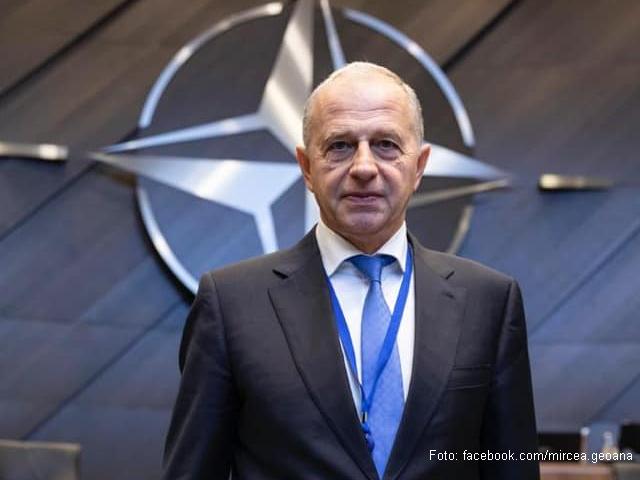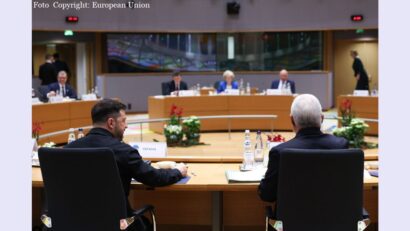NATO enhances deterrence against Russia
NATO continues to strengthen its eastern flank

Roxana Vasile, 17.03.2022, 14:00
As the Russian army carries on its aggression in
Ukraine, in Brussels NATO defence ministers decided to strengthen the Alliance’s
long-term posture, particularly in the eastern flank, including Romania.
The grounds for the decision were summarised by the
Alliance’s secretary general, Jens Stoltenberg, as follows: Russia’s
willingness to resort to force must not be underestimated, nor should one overlook
the fact that the country has nuclear capabilities.
Still, as NATO’s deputy secretary general Mircea
Geoană explained, this is not an indication of an imminent conflict with the
Russian Federation, but rather a deterrence move.
NATO’s reset military positioning in the East will involve
a substantial increase in the number of rapid response land forces with prepositioned
equipment and supplies, more air power, strengthened integrated air and missile
defence, carrier strike groups, submarines and significant numbers of combat
ships. Cyber defence will also be enhanced.
According to Stoltenberg, Allies are united when it
comes to that NATO should not deploy forces on the ground or in the airspace of
Ukraine, to make sure that Vladimir Putin’s war doesn’t spiral into a conflict
between two nuclear blocs.
Nonetheless, NATO defence ministers decided to
continue providing financial, humanitarian and military assistance to Kyiv, as
they have done so far, which helped make the Ukrainian resistance possible. As for
discouraging Moscow’s possible plans to have the conflict escalate beyond Ukraine,
NATO’s battlegroup in Romania will be fully operational shortly.
With respect to the size or possible permanent status
of the new battlegroups in the East, NATO’s deputy secretary general Mircea
Geoană said a final decision would be taken in a summit in June. Meanwhile, given
that the entire security situation in Europe has changed, Allies were urged to
invest at least 2% of GDP in defence. Romania, which has done so for several
years now, has recently decided to increase the GDP share earmarked for defence
to 2.5%.
In short, NATO does not anticipate a Russian attack on
Allied territory, especially since 75% of Russia’s forces are deployed in
Ukraine, without notable results. But, secretary general Jens Stoltenberg reiterated,
NATO will not tolerate any attack on Allied sovereignty or territorial
integrity. The NATO official also called on Russia’s president Putin to stop
the war immediately and to engage in diplomacy in good faith.
The huge disproportion between NATO and Russian forces
favours the Allies, and this can be seen in Moscow as well, the participants in
the extraordinary meeting of NATO defence ministers in Brussels agreed. (A.M.P.)






























